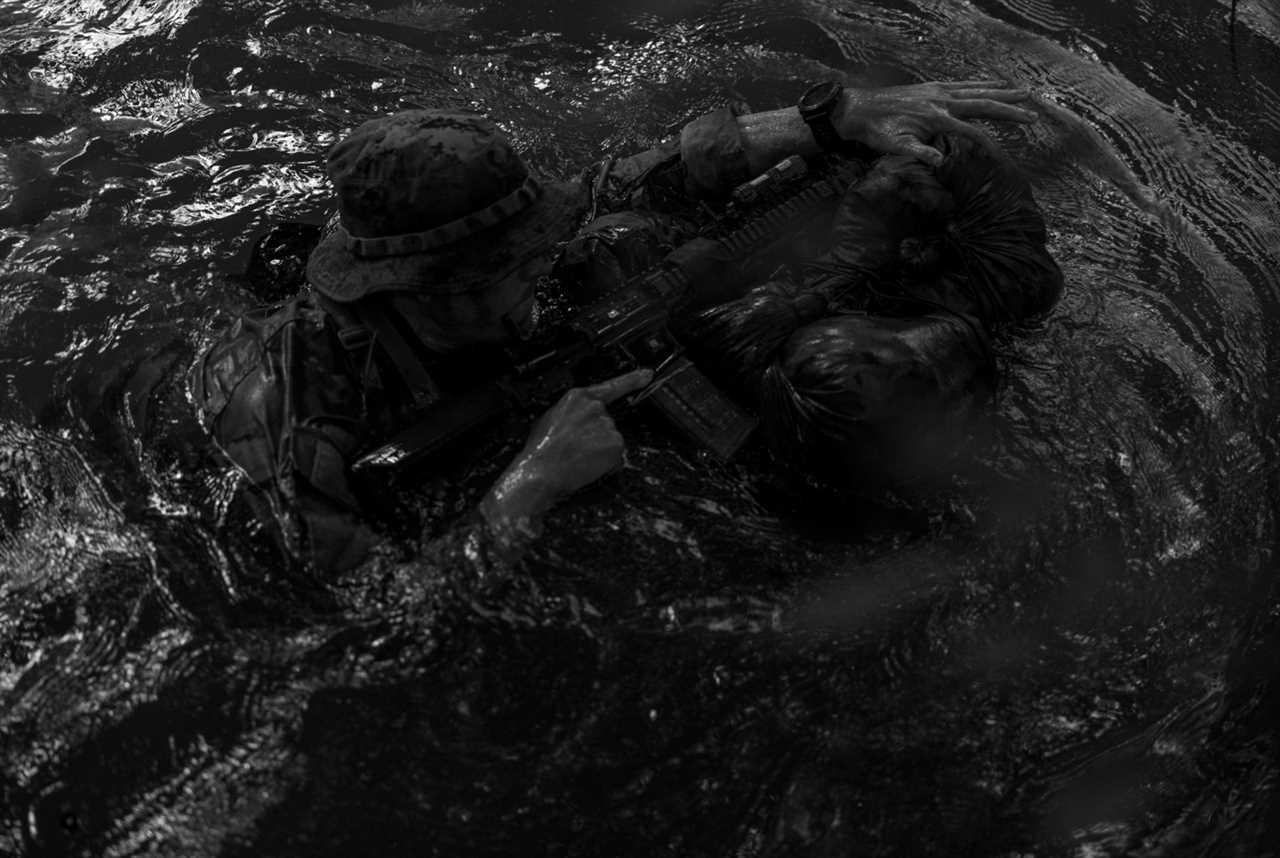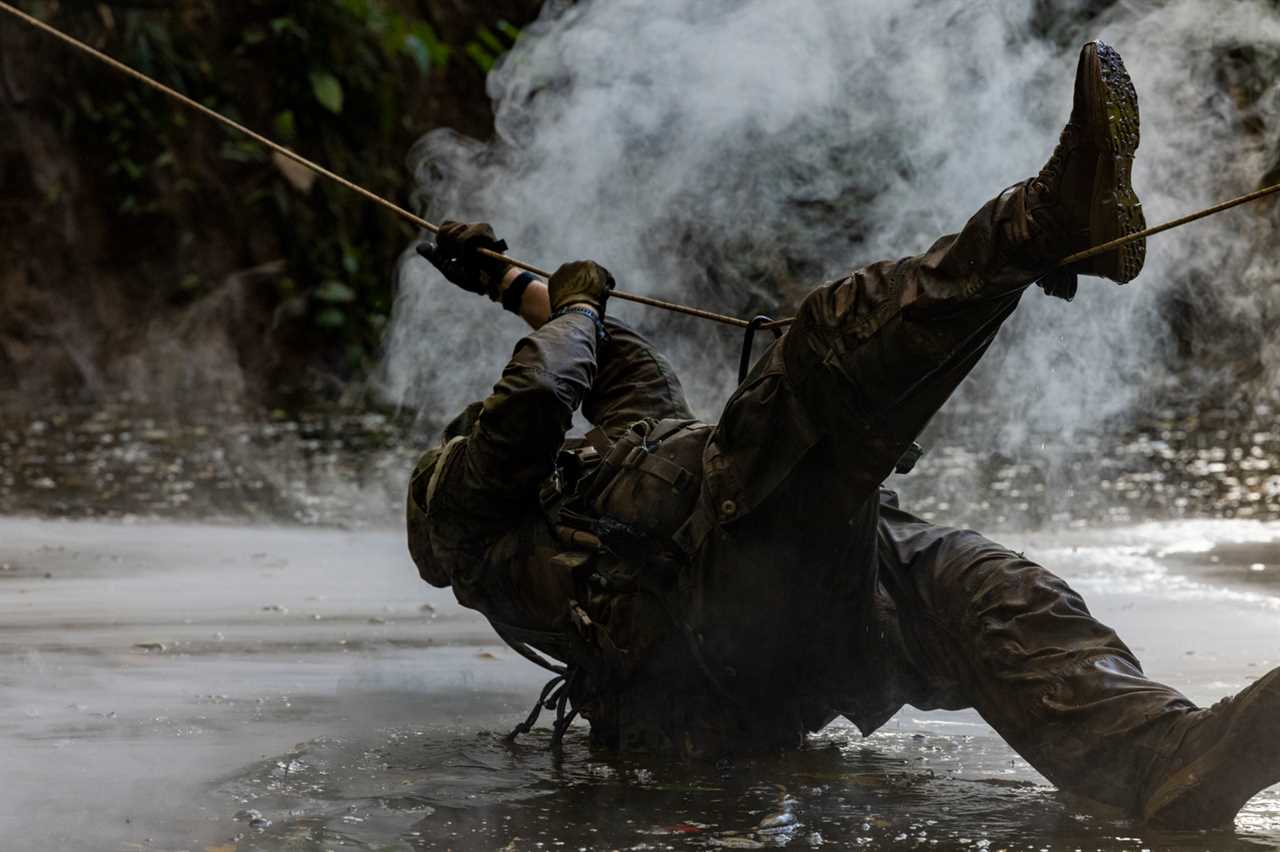U.S. Marine Corps photo by Cpl. Henry Rodriguez
- US special operators are shifting focus to jungle warfare as the potential for conflict with China grows.
- Marine Raiders recently completed a jungle warfare course in Hawaii showing the requirements of jungle operations.
- Decades of desert ops have dulled jungle warfare skills, requiring more specialized training in this environment.
After spending more than 20 years fighting in the wars in the Middle East, US special operators are pivoting to other environments. With the potential for a conflict with China in the Indo-Pacific looming ever larger in the background, the US special operations community is focusing more and more on jungle operations.
A relatively recent exercise involving Marine Raiders highlighted the challenges and unique requirements of jungle warfare.
From the desert to the jungle
Last summer, a small team of Marine Raiders completed a jungle warfare course that addresses the challenges US forces might encounter in an Indo-Pacific conflict.
Taught by special operations and law enforcement veterans at the Tactical Tracking Operations School, the course began in 2015 but really took off in 2021. The two-week course takes place on the island of Oahu, Hawaii, and is designed to take small special operations teams and teach them the necessary skills to survive and thrive in jungle operations.
The Marine Raiders trained in jungle mobility skills, such as navigating thick brush, scaling and rappelling cliffs, and traversing rivers, counter Improvised Explosive Device (IED) techniques, reaction to contact, and ambushes. Throughout the course, the special operators either tracked an adversary or prevented them from tracking the team.
"Looking at the Pacific and deployments in that region, learning these skills is essential," a Marine Raider said in a press release. "For so long we trained for desert environments and now we have to look at where we could be needed next, and the jungle is top of that list."

U.S. Marine Corps photo by Cpl. Henry Rodriguez
The course ends with a final exercise that lasts up to three days and tests all the skillsets taught. After a simulated ambush, the students must regroup and hunt down the adversary using their tracking skills.
Two decades of counterterrorism and counterinsurgency operations in Iraq, Afghanistan, and Syria largely dulled the jungle warfare capabilities of many units. Jungle warfare presents a whole different level of difficulty and requires specialized training to operate effectively.
"These same problems that we have now: low visibility, difficulty for intelligence, surveillance and reconnaissance platforms, broken communications, and logistical issues, they all existed for troops during WWII and Vietnam," Cody Carroll, the vice president of the school, said. "We didn't need to reinvent the wheel, just build the skills that we stopped training because we spent 20 years in the desert."

U.S. Marine Corps photo by Cpl. Henry Rodriguez
For example, movement in the jungle is much more restricted and visibility is often limited to just a few yards. Moreover, there are many small and large animals that can ruin someone's day, necessitating the right survival training. Tracking is another important part of jungle operations. With so much foliage, it's easy for an untrained unit to leave evidence of its direction in the jungle.
"I've been through this training with two teams now and both experiences were beneficial to everyone on the team," a Critical Skills Operator, or CSO, said. "I really think every company that can deploy to a jungle environment should come do this training. It's invaluable."
A history of jungle operations
US commandos have a long history of conducting jungle operations.
During World War II, US special operations units like the Alamo Scouts and the Marine Raiders fought the Japanese in the jungles of southeast Asia and the Pacific.
Then, during the Vietnam War, special operators serving in the secretive Military Assistance Command Vietnam-Studies and Observations Group (MACV-SOG) fought a classified war against the North Vietnamese and Vietcong in Laos and Cambodia.
Although the White House had assured the American public that no US troops were on the ground in the two countries that border Vietnam, the Pentagon understood that to stem the flow of weapons and insurgents in South Vietnam, it had to fight the enemy where it hurt.
Small teams of Green Berets, Navy SEALs, Force Recon Marines, and Air Commandos conducted some of the most impressive missions in US special operations history.
Today, as the US attempts to redirect its focus to the Indo-Pacific amid steadily rising tensions between the US and China, it looks like jungle operations are back on the menu for the US special operations community.
Read More
By: [email protected] (Stavros Atlamazoglou)
Title: With eyes on China, US special operators are back to battling the jungle
Sourced From: www.businessinsider.com/jungle-warfare-back-on-the-menu-for-us-special-operations-2024-3
Published Date: Sun, 24 Mar 2024 12:14:01 +0000
Did you miss our previous article...
https://trendinginbusiness.business/business/dogecoins-surge-ignited-by-musk
.png)





